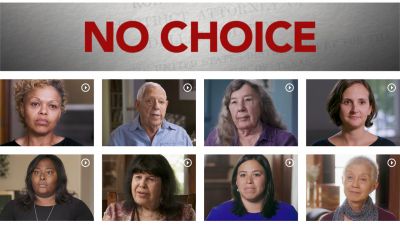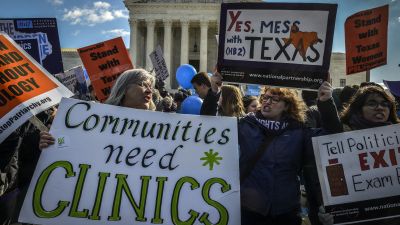788
The number of abortion clinics across the US in 2014, according to the Guttmacher Institute. Just a few years earlier, in 2011, there were 851 abortion providers. The 7-percent drop is because of Targeted Restrictions on Abortion Providers, or “TRAP” laws, introduced in states by conservative politicians. By 2014, many states had only one abortion clinic, and many more states had only two or three, to serve enormous geographical areas.
395
The number of abortion restrictions passed by states since 2011, after a Republican “wave” election swept through statehouses across the country.
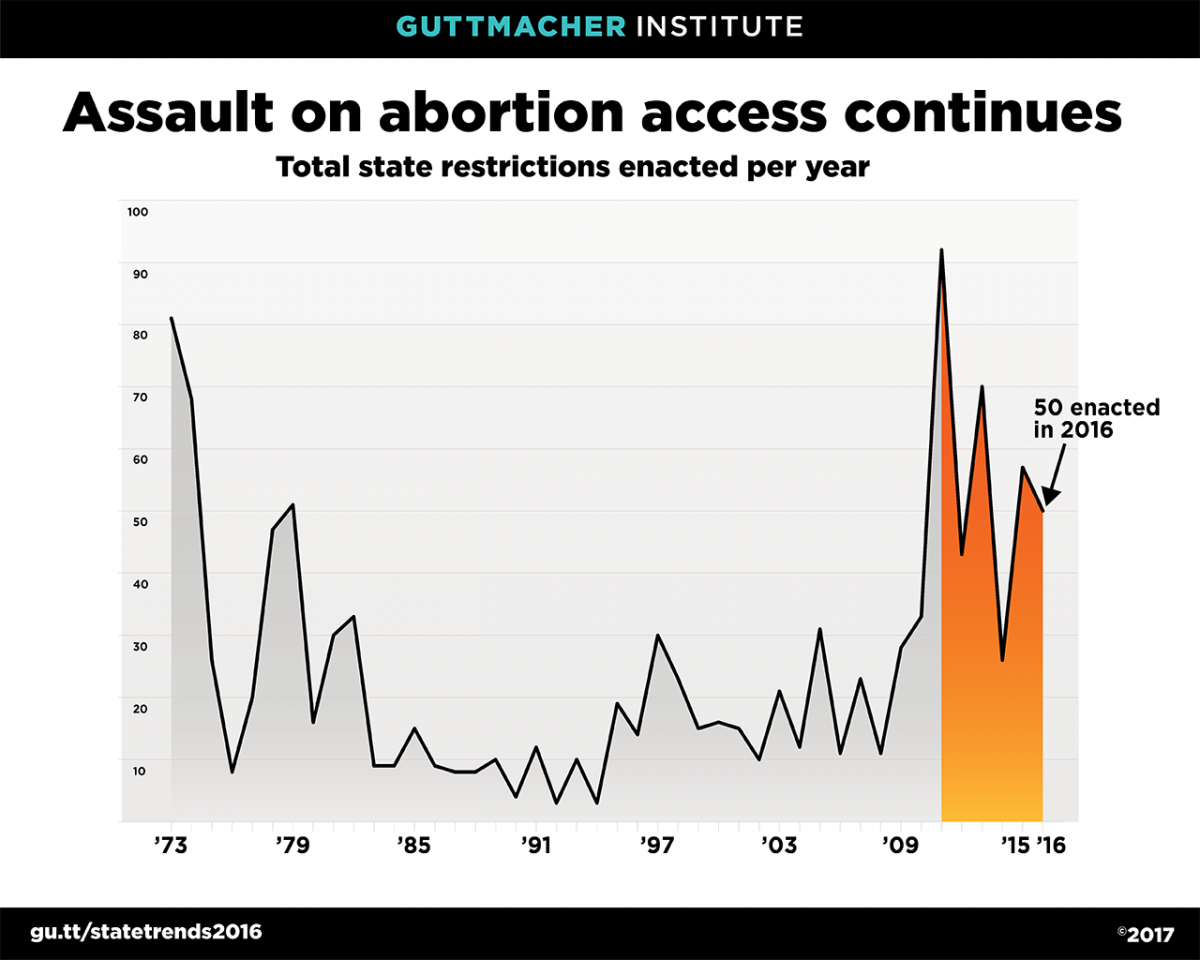
Total number of abortion restrictions enacted per year since 1973. (Courtesy of the Guttmacher Institute)
1,140
In the 44 years since Roe v. Wade, state legislatures have enacted over 1,140 abortion restrictions.
23
The number of states with “TRAP” laws — Targeted Regulation of Abortion Providers — that require abortion providers to conform to burdensome regulations that aren’t required of other providers of outpatient care.
7
The number of states that had only one abortion provider as of May 2017: North Dakota, South Dakota, Wyoming, Kentucky, West Virginia, Missouri and Mississippi.
61,562
The number of incidences of picketing outside of clinics reported to the National Abortion Federation in 2016. In 2015 the number of reported incidents was 21,715.
94
The number of abortion providers who received death threats and threats of harm in 2015 according to statistics collected by the National Abortion Federation.
11
According to The New York Times, at least 11 abortion providers have been murdered since 1993. The National Abortion Federation also reports that since 1977 there have also been “26 attempted murders, 42 bombings, 186 arsons and thousands of incidents of criminal activities directed at abortion providers.”
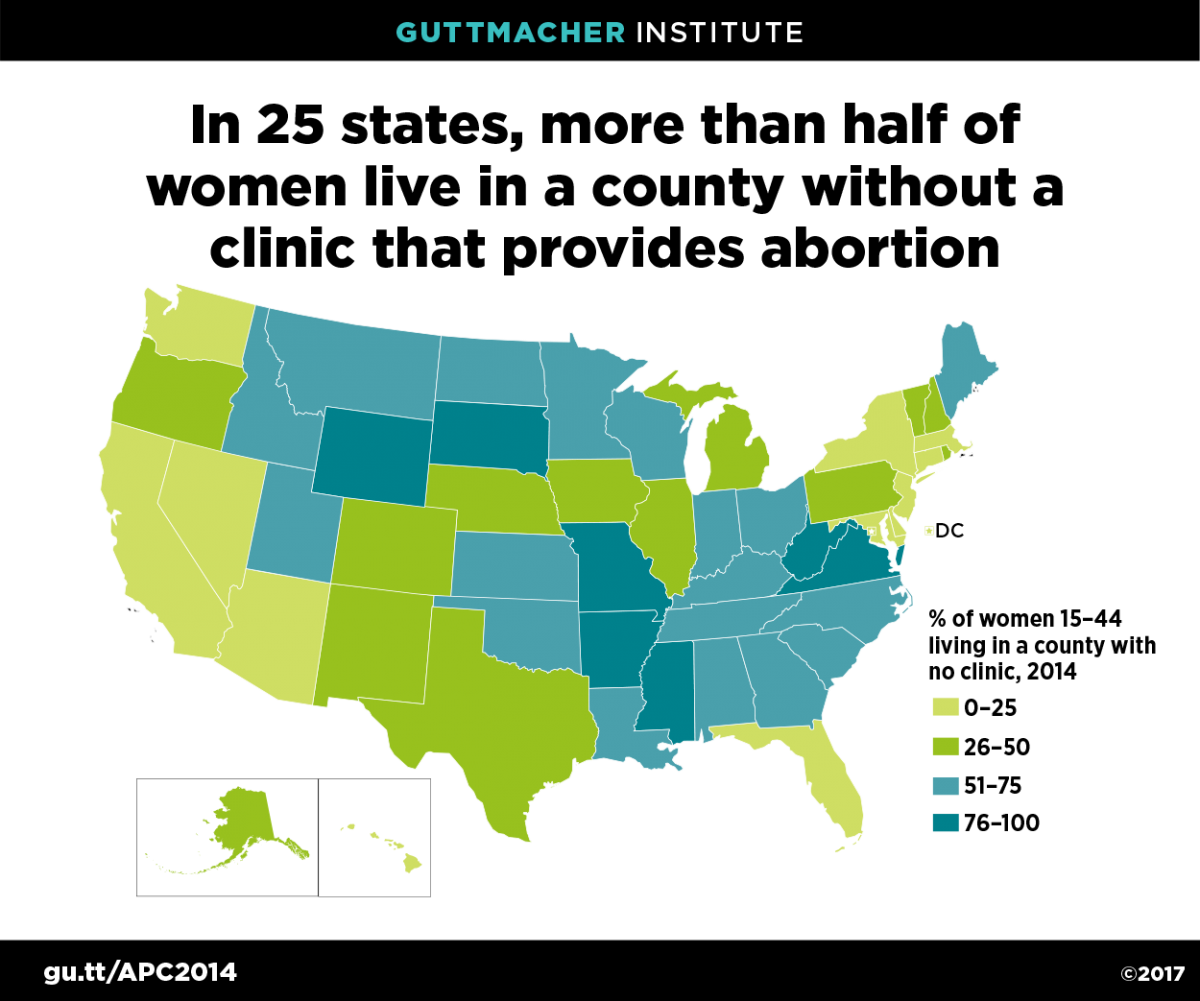
Abortion access in the United States, 2014. (Courtesy of the Guttmacher Institute)
1,200,000
The number of women of reproductive age who live at least 45 miles from the nearest abortion provider.
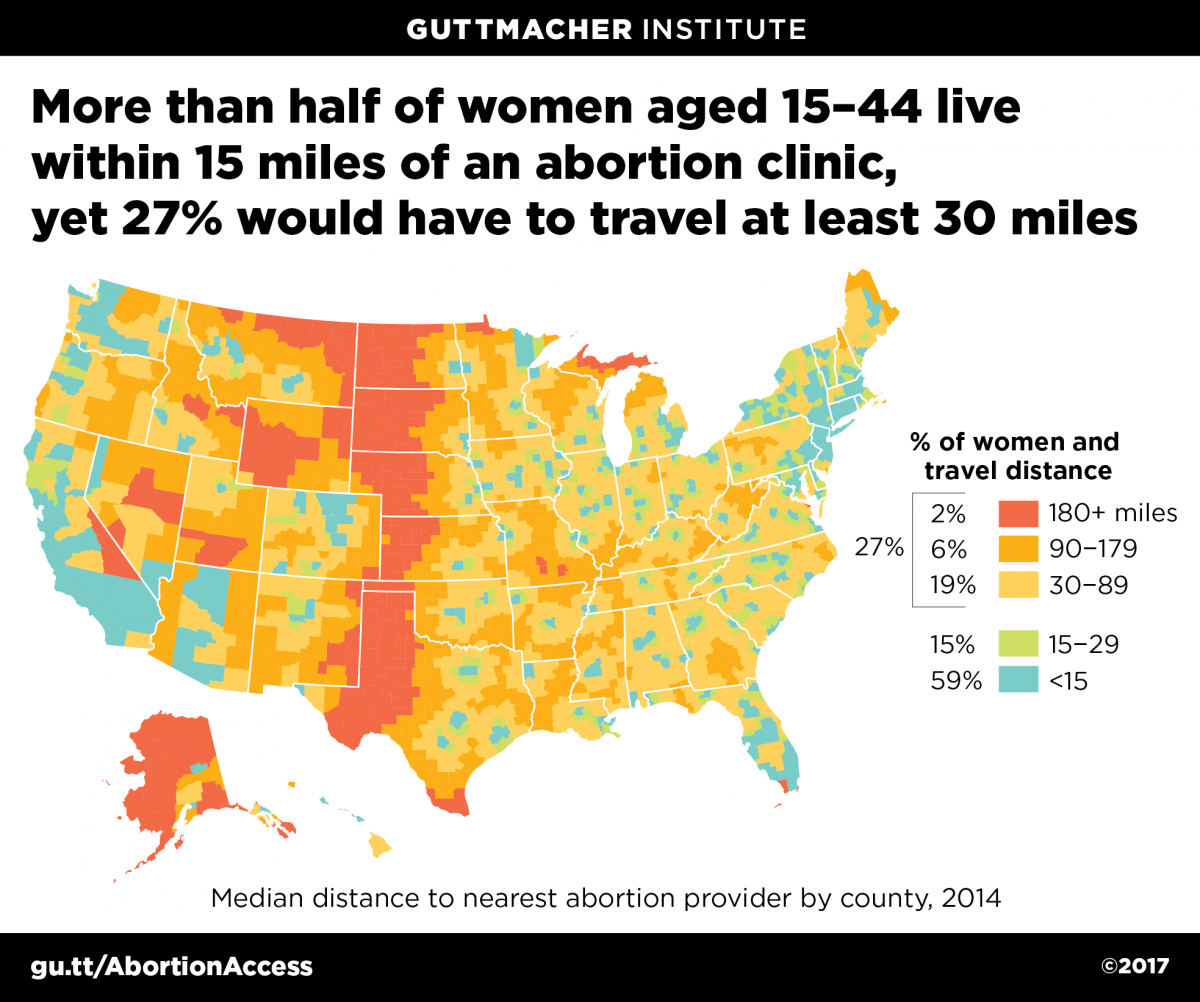
The distance US women must travel to access abortion services. (Courtesy of the Guttmacher Institute)
90 percent
The percentage of all US counties that lacked an abortion clinic in 2014; 39 percent of women aged 15-44 lived in those counties.
66 percent
The percentage of abortion clinics that don’t offer the procedure after 20 weeks of gestation.
45 percent
“In 2011, the most recent year for which national-level data are available, 45 percent of all pregnancies in the United States were unintended,” according to the Guttmacher Institute.
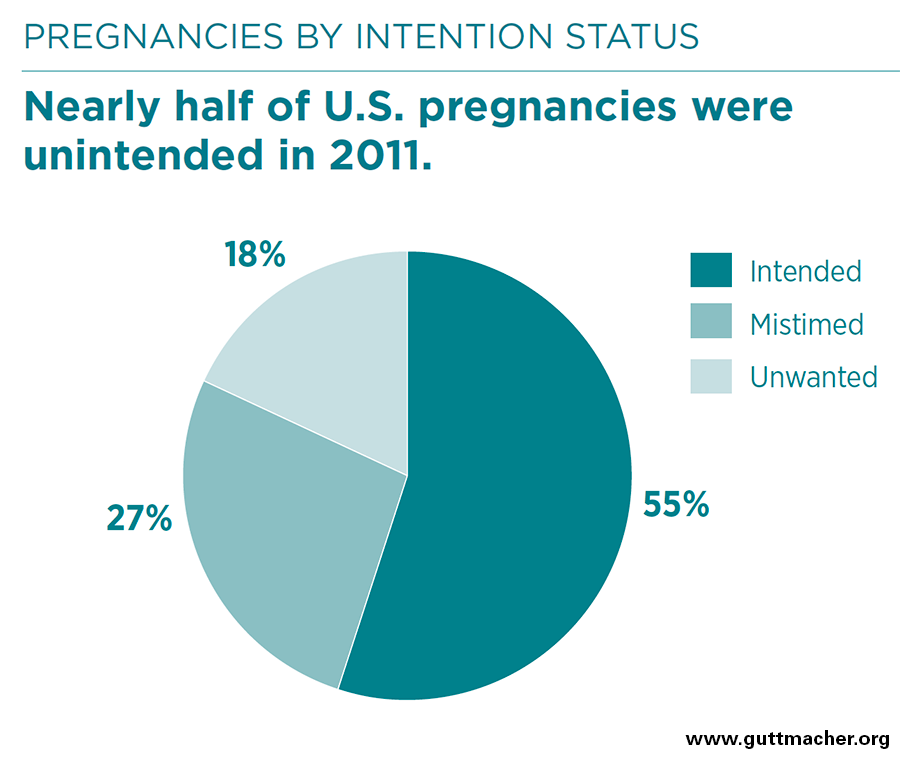
Pregnancies by intention status. (Courtesy of the Guttmacher Institute)
40 percent
The percentage of those pregnancies (excluding miscarriages) that ended in an abortion.
75 percent
The percentage of abortion patients who are are low-income or live in poverty.
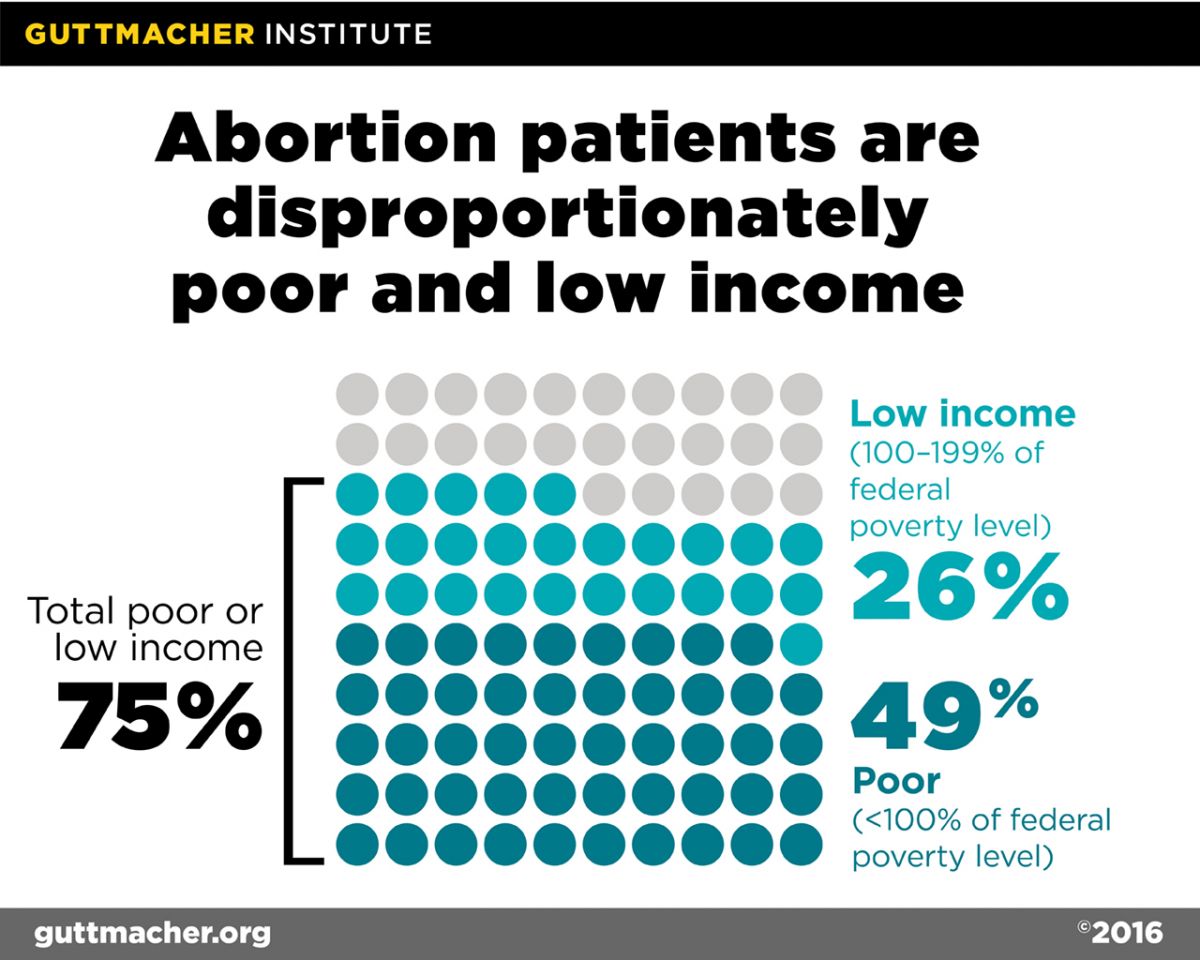
Characteristics of US abortion patients by income level, between 2008 and 2014. (Courtesy of the Guttmacher Institute)
51 percent
The percentage of women who got an abortion in 2008 and had used contraceptives in the month that they got pregnant.
12 percent
The percentage of women who had abortions in 2014 who were adolescents.
59 percent
The percentage of women who got an abortion in 2008 who had already given birth to at least one child.
89 percent
The percentage of abortions performed in the United States in 2013 that occurred during the first 12 weeks of pregnancy. At 12 weeks of development, the average fetus is just over 2 inches in length and weighs just under a half-ounce.
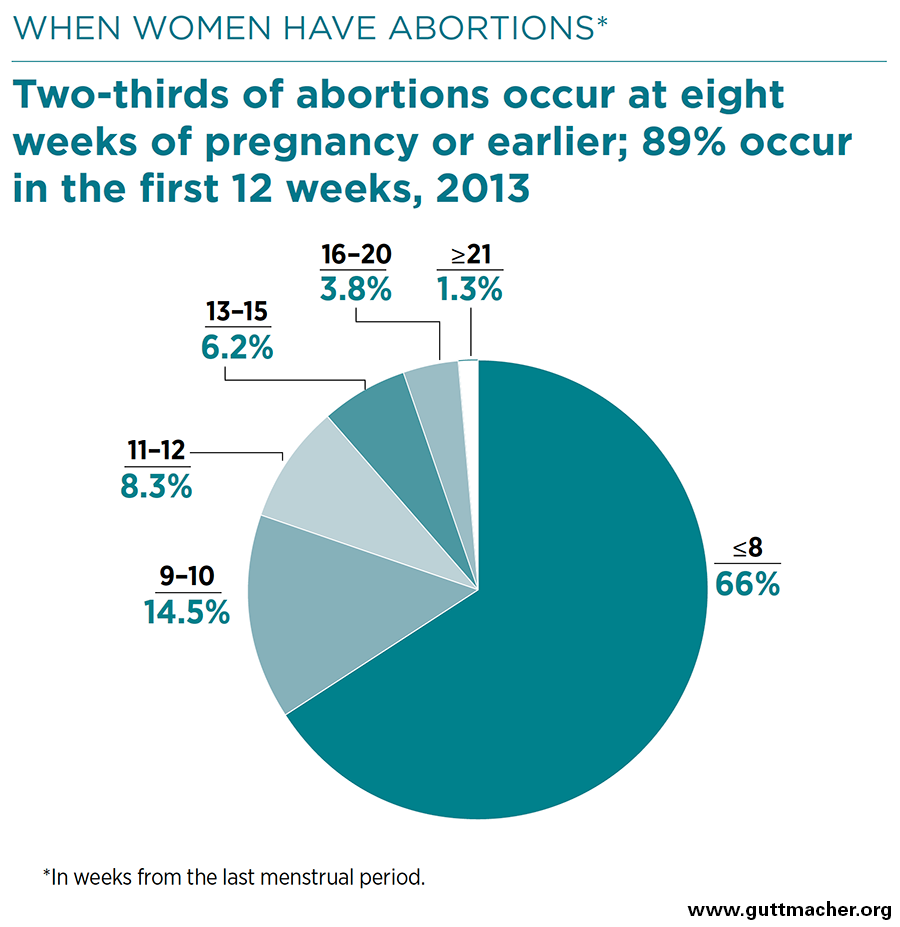
Abortions by gestational age in 2013. (Courtesy of the Guttmacher Institute)
$480
The average cost of a surgical abortion at 10 weeks in 2012, the most recent year for which data is available.
21 billion
“Unintended pregnancies are costly to the federal and state governments, resulting in $21.0 billion in public expenditures in 2010.”
0 percent
The percentage of federal dollars used by Planned Parenthood to provide abortions. “Federal law expressly prohibits the use of Title X funds to pay for abortions — while abortion providers like Planned Parenthood can qualify for grants, the government requires that no federal dollars go toward the termination of pregnancies.”
750,000
The number of new supporters of Planned Parenthood gained between July 2015 and June 2016.
Unless otherwise indicated, these statistics are from the Guttmacher Institute, whose research is cited by both advocates and opponents of legal abortion.

